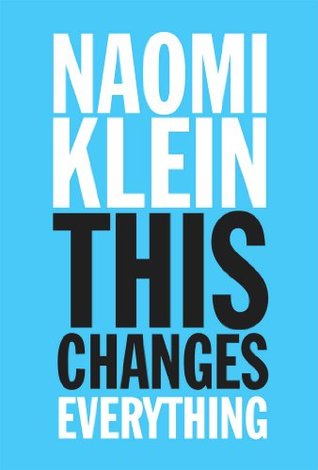More on this book
Community
Kindle Notes & Highlights
by
Naomi Klein
Read between
May 30 - July 29, 2020
All of life has the right to renew, regenerate, and heal itself. Based on this principle, countries like Bolivia and Ecuador—with large Indigenous populations—have enshrined the “rights of Mother Earth” into law, creating powerful new legal tools that assert the right of ecosystems not only to exist but to “regenerate.”III, 38
Living nonextractively does not mean that extraction does not happen: all living things must take from nature in order to survive. But it does mean the end of the extractivist mindset—of taking without caretaking, of treating land and people as resources to deplete rather than as complex entities with rights to a dignified existence based on renewal and regeneration.
The U.S. civil rights movement, for instance, fought not only against legalized segregation and discrimination but also for massive investments in schools and jobs programs that would close the economic gap between blacks and whites once and for all.
And though often forgotten, the more radical wing of the second-wave feminist movement also argued for fundamental challenges to the free market economic order. It wanted women not only to get equal pay for equal work in traditional jobs but to have their work in the home caring for children and the elderly recognized and compensated as a massive unacknowledged market subsidy—essentially a demand for wealth redistribution on a scale greater than the New Deal.
There have been social movements, however, that have succeeded in challenging entrenched wealth in ways that are comparable to what today’s movements must provoke if we are to avert climate catastrophe. These are the movements for the abolition of slavery and for Third World independence from colonial powers. Both of these transformative movements forced ruling elites to relinquish practices that were still extraordinarily profitable, much as fossil fuel extraction is today.
The fact that our most heroic social justice movements won on the legal front but suffered big losses on the economic front is precisely why our world is as fundamentally unequal and unfair as it remains. Those losses have left a legacy of continued discrimination, double standards, and entrenched poverty—poverty that deepens with each new crisis. But, at the same time, the economic battles the movements did win are the reason we still have a few institutions left—from libraries to mass transit to public hospitals—based on the wild idea that real equality means equal access to the basic
...more
Frantz Fanon wrote in his 1961 masterwork, The Wretched of the Earth. “What matters today, the issue which blocks the horizon, is the need for a redistribution of wealth. Humanity will have to address this question, no matter how devastating the consequences may be.”14 Climate change is our chance to right those festering wrongs at last—the unfinished business of liberation.
what is overwhelming about the climate challenge is that it requires breaking so many rules at once—rules written into national laws and trade agreements, as well as powerful unwritten rules that tell us that no government can increase taxes and stay in power, or say no to major investments no matter how damaging, or plan to gradually contract those parts of our economies that endanger us all.
So how do you change a worldview, an unquestioned ideology? Part of it involves choosing the right early policy battles—game-changing ones that don’t merely aim to change laws but change patterns of thought.
This is another lesson from the transformative movements of the past: all of them understood that the process of shifting cultural values—though somewhat ephemeral and difficult to quantify—was central to their work. And so they dreamed in public, showed humanity a better version of itself, modeled different values in their own behavior, and in the process liberated the political imagination and rapidly altered the sense of what was possible. They were also unafraid of the language of morality—to give the pragmatic, cost-benefit arguments a rest and speak of right and wrong, of love and
...more


